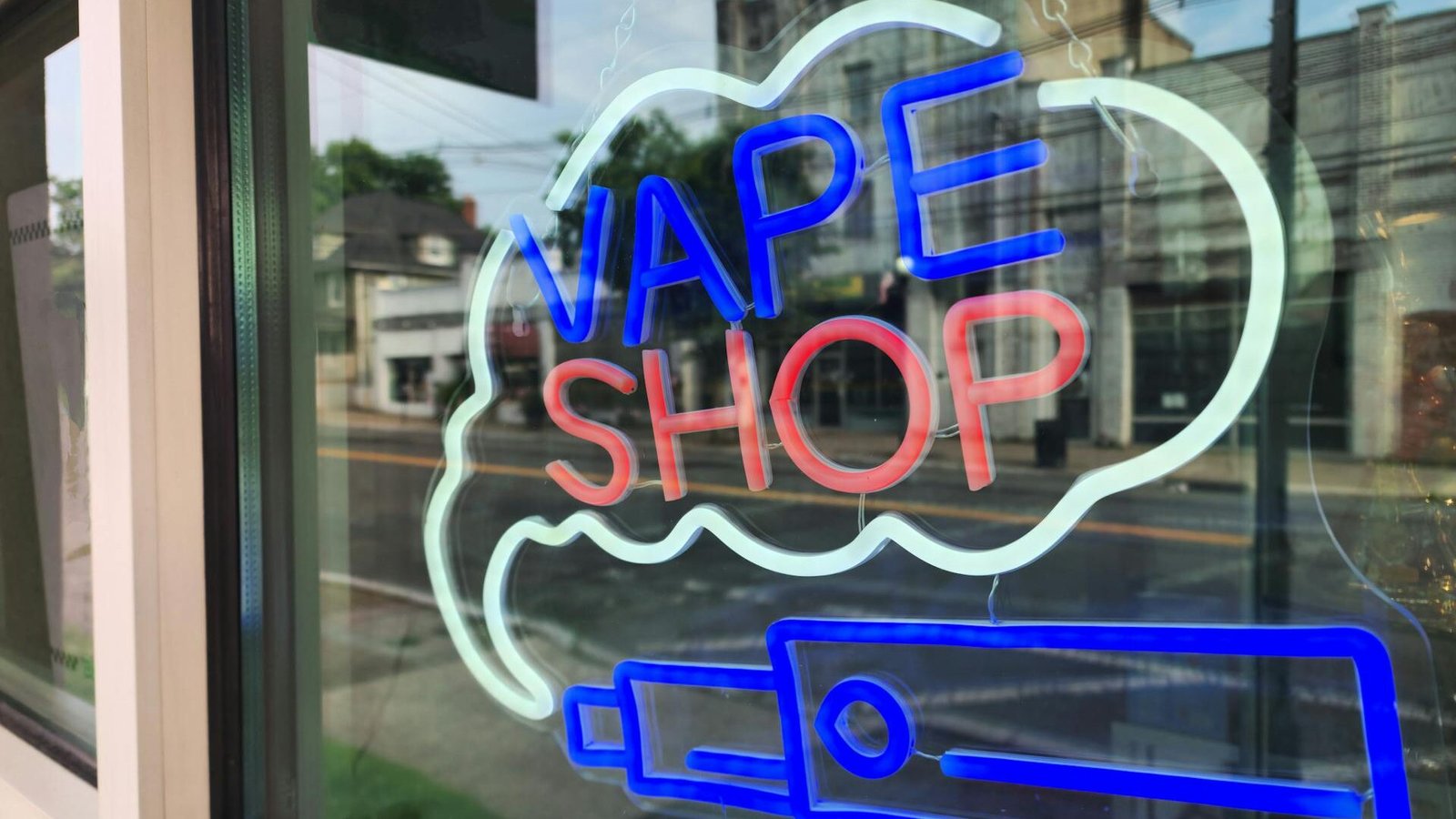
I. Introduction: Policy Environment and Logistics Challenges in the Indian E – cigarette Market
Against the backdrop of the booming global e – cigarette market, the Indian market in 2025 presents a completely different picture due to strict policy restrictions. Since 2019, India has enacted and implemented the “Prohibition of Electronic Cigarettes (Production, Manufacture, Import, Export, Transport, Sale, Storage, and Advertisement) Act”. The penalties under this act are extremely severe.
First – time offenders may face a maximum of one – year imprisonment or a fine of up to 100,000 Indian rupees, while repeat offenders may face a maximum of three – year imprisonment and a hefty fine of up to 500,000 Indian rupees. Such a stringent policy has undoubtedly imposed a heavy yoke on the Indian e – cigarette market.
Despite the legal ban, there is still a certain demand for e – cigarettes in the Indian market. Some consumers are particularly fond of e – cigarette products, which has given rise to potential logistics needs. However, this demand faces significant logistics challenges, and ordinary logistics services are simply unable to cope with such a complex policy environment. In this situation, professional logistics services that are well – aware of the risks and have corresponding control capabilities are particularly crucial. They are like guiding lights in the fog, helping enterprises find their way forward in the complex logistics environment.
II. Interpretation of the Indian E – cigarette Ban and General Customs Regulations
Core Content of the Ban
This Indian act comprehensively prohibits all aspects of e – cigarettes from production to advertisement. The illegality of “import” and “transport” is the core point. This means that any attempt to bring e – cigarettes into India or transport them within India directly violates local laws. Once detected, relevant enterprises and individuals will surely face severe legal sanctions, which undoubtedly poses a huge risk to the logistics and transportation of e – cigarettes.
General Strict Requirements of the Indian Customs
- Risk of Cargo Detention and Auction: After the cargo arrives at the port, it can only be stored in the customs warehouse for 30 days. After the 30 – day period expires, the customs will issue a pick – up notice to the importer. If the Indian buyer does not apply for an extension of the storage time, the exporter’s cargo will be auctioned after 30 days of storage. For e – cigarette cargo, this risk is even greater. Imagine that an enterprise spends a large amount of cost on producing and transporting e – cigarettes, but finally loses all its investment because the cargo is auctioned. This is such a painful loss and a huge blow to the enterprise.
- Document Requirements: All imported goods must submit a full set of import documents, including import licenses, customs declarations, commercial invoices, certificates of origin, packing lists, etc. Moreover, the information on these documents must be consistent and accurate. Any small error or missing information may lead to the inability of the cargo to clear customs smoothly, which in turn may trigger a series of problems such as cargo detention and fines. This requires enterprises to be extremely cautious when preparing documents to ensure that every detail is accurate.
Risk Qualification
It is clear that any import and export activities targeting e – cigarettes face huge risks of cargo seizure, destruction, high – value fines, and legal prosecution. This is like the Sword of Damocles hanging over enterprises, constantly reminding them to act with caution and fully consider these risks when carrying out e – cigarette logistics and transportation operations.

III. Core Value of Professional Services: Risk Control and Process Assurance
Advantages of the “Double – Clearance and Tax – Included” Service
One – Stop Service: Our company offers a “customs – declaration available” service, which means we are responsible for China’s export customs declaration and India’s import customs clearance, and pay tariffs and taxes on behalf of the clients. For clients, this undoubtedly saves a large amount of cumbersome work. In the past, clients had to handle various customs declaration and clearance procedures by themselves, which not only consumed a lot of time and energy but also might lead to problems due to unfamiliarity with the process.
Now, our one – stop service allows clients to simply hand over the cargo to us, and the rest will be taken care of by our professional team, greatly simplifying the clients’ operation process and making them more worry – free and labor – saving.
Cost Lock – in: The “tax – included” price can effectively lock in the logistics cost. In India, the tax system is complex and changeable, and it is even more difficult to estimate the taxes for sensitive goods like e – cigarettes. If ordinary logistics services are used, clients may face unpredictable tax costs, which will bring great trouble to the enterprise’s financial planning. Our “double – clearance and tax – included” service enables clients to clearly know the logistics cost from the very beginning, without having to worry about additional tax expenses. It is like putting an insurance lock on the clients’ costs, allowing them to plan their business more confidently.
Responsibility of the “Full – Compensation” Promise
Our company’s “full – compensation” promise has a pre – condition, that is, clients need to purchase corresponding insurance. During the transportation process, although we will take various measures to ensure the safety of the cargo, there may still be some unexpected situations such as lost packages and cargo damage.
Once these situations occur, as long as the client has purchased insurance, we will provide a clear compensation plan within the controllable range. This is like giving clients a reassuring pill, making them more confident when choosing our services and not having to worry about losses caused by unforeseen risks. Purchasing insurance is like adding a solid protective shield to the cargo transportation, which can minimize the client’s losses in case of accidents.
Capital Security Guarantee Mechanism of “Payment after Taking Photos at the Warehouse”
The clause of “payment after taking photos at the Indian warehouse before delivery”, that is, “payment after taking photos at the warehouse”, is the most important risk control measure for the shipper. In the traditional logistics model, clients often need to pay most of the payment before or during the cargo transportation. Once the cargo encounters problems during transportation or customs clearance, clients may face the situation of “losing both the cargo and the money”.
Our “payment after taking photos at the warehouse” service ensures that clients only pay most of the payment after the cargo safely arrives at the Indian warehouse. Clients can confirm the safety and integrity of the cargo through the photos we provide and then make the payment. This measure greatly guarantees the clients’ capital security, like building a solid defense line for the clients’ funds and allowing them to conduct transactions more confidently.
“Delivery in New Delhi” and Timeliness Promise
Our company provides the “delivery in New Delhi” service, ensuring that the cargo can be accurately delivered to the destination. At the same time, we promise that “the normal transit time is 28 to 45 days after the ship sails, and there are ships every week”. A stable shipping schedule and predictable transportation time are crucial for clients. Clients can reasonably plan their business, arrange production and sales plans according to the transit time we provide. This reflects the professionalism and reliability of our services and makes clients more confident in cooperating with us.
IV. Service Process of India E – cigarette Ocean Freight Double – Clearance Special Line
Step 1: Consultation and Booking
When clients have a demand for India e – cigarette ocean freight, they will first consult with us. Our professional customer service staff will carefully understand the clients’ cargo volume, timeliness requirements and other information. At the same time, we will also introduce to the clients the important content that “full compensation requires the purchase of insurance”, and then book a suitable shipping schedule for the clients based on this information. We have ships every week, which can meet the different transportation needs of clients and ensure that the cargo can be shipped out in time, providing strong support for the clients’ business development.
Step 2: Shipping to the Chinese Warehouse and Export Customs Declaration
After the clients ship the cargo to our warehouse in China, our professional team will immediately start the China – end customs declaration work. We are familiar with China’s customs declaration process and relevant policies, and will carefully check the cargo information and documents to ensure the smooth progress of the customs declaration work. During this process, we will maintain close communication with the customs to promptly solve any possible problems and ensure that the cargo can be exported smoothly. At the same time, we will also remind the clients again about the importance of purchasing insurance to enjoy the “full – compensation” service, so that clients always keep this important guarantee in mind.
Step 3: Ocean Freight
After the cargo sets sail for India on the ship, we will use an advanced logistics tracking system to track the transportation status of the cargo in real – time. We can always know the location and status of the cargo and promptly feedback to the clients. During the ocean freight process, we will also maintain close contact with the shipping company to ensure the safe transportation of the cargo. At this time, the purchased insurance also begins to play a protective role, escorting the cargo transportation and allowing clients to always keep track of the cargo’s dynamic and wait for the arrival of the cargo at the destination with peace of mind.
Step 4: Indian Customs Clearance
When the cargo arrives at the Indian port, our team in India will immediately take over and start the import customs clearance and tax – payment process. This is the core part of the “double – clearance and tax – included” service. Our Indian team is familiar with the local customs policies and customs clearance processes, and will prepare all necessary documents in advance and actively communicate with the customs. They will do their best to ensure that the cargo can pass the customs inspection smoothly and complete the customs clearance and tax – payment procedures in a timely manner, laying a foundation for the smooth entry of the cargo into the Indian market.
Step 5: Picking up the Cargo at the Destination Port and Temporary Storage in the Indian Warehouse
After the customs clearance is completed, we will pick up the cargo and store it temporarily in the Indian warehouse. Our warehouse is well – equipped with good safety protection measures, which can ensure the safety and integrity of the cargo during the temporary storage period. This provides reliable guarantee for the subsequent delivery of the cargo, so that clients don’t have to worry about problems occurring during the storage of the cargo in the warehouse.
Step 6: [Core Guarantee Link] Confirmation and Payment after Taking Photos at the Warehouse
We will promptly send the clients photos of the cargo in the Indian warehouse, that is, conduct the “taking photos at the warehouse” process, so that clients can confirm the safety and integrity of the cargo. After the clients confirm that everything is okay, they can pay the balance. This “payment after taking photos at the warehouse” link greatly guarantees the clients’ capital security, allowing clients to complete the transaction with confidence and eliminating their concerns about capital security.
Step 7: Local Delivery
Finally, we will arrange local logistics to complete the delivery of the cargo to New Delhi. We have established a long – term and stable cooperative relationship with local logistics partners. They have rich transportation experience and professional delivery teams, which can ensure that the cargo is delivered to the clients on time and safely. This provides clients with a one – stop logistics service, so that clients don’t have to worry about the last – mile delivery problem of the cargo.

V. To Our Clients: Risk Awareness and the Choice of Professional Services
Frank Risk Notification
We must emphasize again that under the current Indian policies, the risk of e – cigarette transportation is extremely high, and we cannot guarantee 100% success. We never avoid risks. Instead, we hope that clients can fully understand the existence of risks and make rational decisions. This is like sailing in a stormy sea. Clients must clearly know the possible hidden reefs and storms ahead to be prepared. At the same time, clients should also understand the importance of purchasing insurance to enjoy the “full – compensation” service, which is an important means to reduce risks.
Significance of Professional Services
It is precisely because of the huge risks that it is even more necessary to choose a professional logistics service provider like us, which has rich experience, transparent processes, and risk control measures (such as cash – on – delivery, compensation, and stable timeliness). We have accumulated years of experience in the Indian e – cigarette logistics field, are familiar with policies, regulations, and logistics processes, and can provide clients with all – around services and guarantees.
We are like reliable partners for clients in the complex logistics environment, helping them avoid risks and reach their destinations smoothly. We will introduce to the clients in detail the rule that “full compensation requires the purchase of insurance” so that clients can make choices with full knowledge.
Foundation for Cooperation
- Full Risk Awareness: Clients must fully understand and voluntarily bear the possible losses. Only on the basis of a clear understanding of risks can they establish a cooperative relationship with us. This is like an investment. Clients must clearly know the possible returns and risks to make a wise decision. At the same time, clients should understand the protective role of purchasing insurance during the transportation process, which is an important measure to ensure the safety of the cargo and reduce losses.
- True Commodity Declaration: Clients should provide accurate commodity information for our assessment. Accurate commodity declaration is the basis for the smooth progress of logistics and also the basis for our risk assessment and transportation plan formulation. If the information provided by clients is inaccurate, it may lead to problems such as cargo seizure and fines, which will not only bring losses to clients but also affect the quality of our services. Therefore, clients must provide true and accurate commodity information.
- Clear Contract Terms: The rights and responsibilities of both parties, the scope of compensation, and exemption clauses need to be clearly defined. Before cooperation, we will sign a detailed contract with clients, clearly defining the rights and obligations of both parties, including the relationship between “full compensation” and the purchase of insurance, to avoid disputes during the cooperation process. The contract is like a rule – book for our cooperation, ensuring that both parties abide by the regulations during the cooperation process, guaranteeing the smooth progress of cooperation, and providing a solid legal guarantee for our cooperation.
VI. Conclusion
The severity of the Indian E – cigarette Ban in 2025 and the high risks associated with relevant logistics activities are facts that cannot be ignored. In such a harsh environment, professional, reliable logistics services with risk control capabilities (such as cash – on – delivery, compensation, and stable timeliness) are particularly precious and important. We call on clients to make rational decisions. If it is really necessary to carry out India E – cigarette Ocean Freight, they must choose a trustworthy professional partner and attach importance to purchasing insurance to enjoy the “full – compensation” service.
Disclaimer: This article aims to introduce the logistics service model and relevant risks and does not constitute any operational advice. Clients should assess risks on their own and comply with all applicable laws and regulations.





